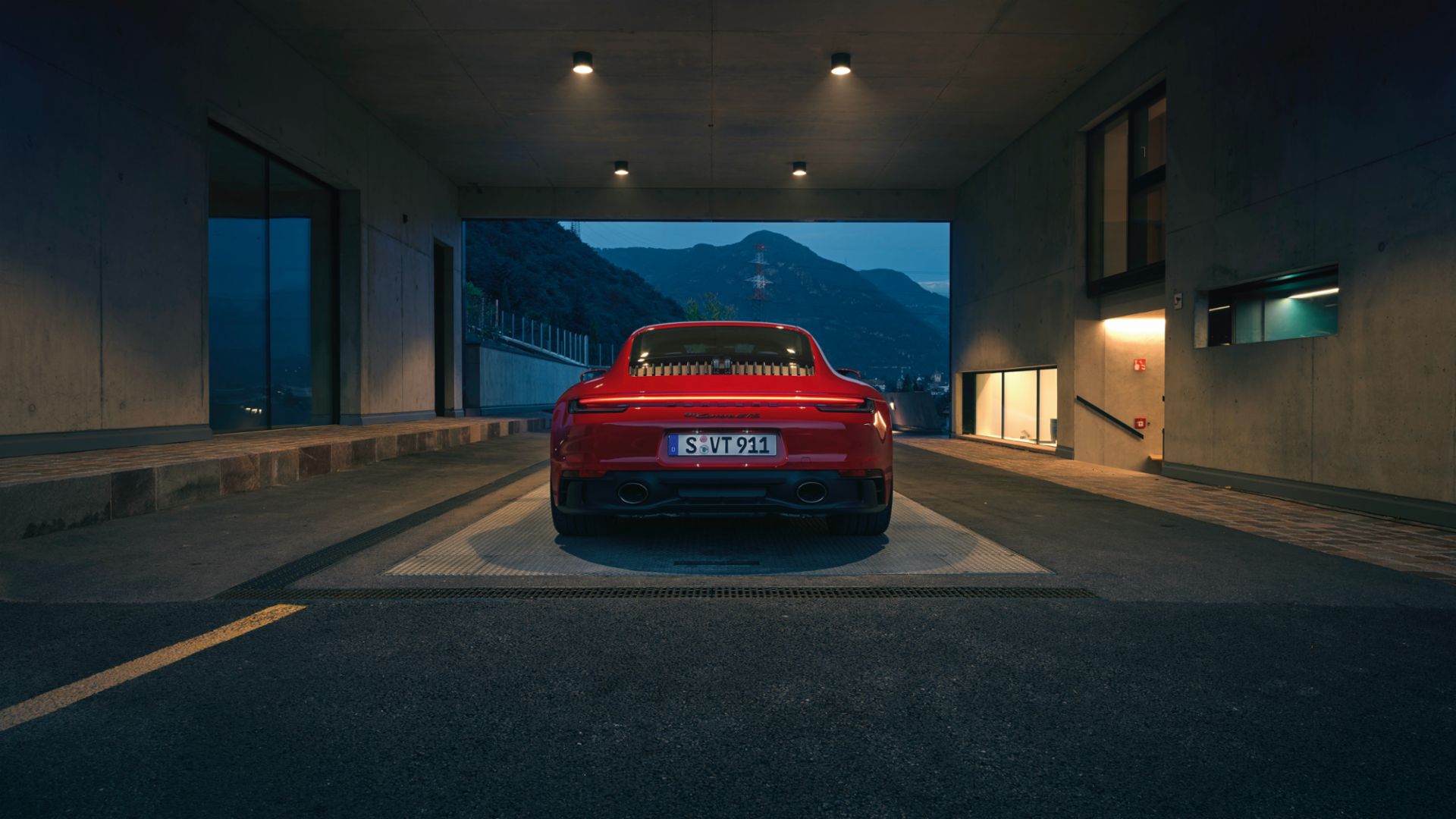Earlier this week, Porsche CEO Oliver Blume spoke briefly to the media during the Automobilwoche Congress in Ludwigsburg, Germany about plans for a hybrid 911. Zuffenhausen’s head honcho only said that the electrified sports car will borrow technology from motorsport and that it would use a non-PHEV setup, meaning owners will not have to plug it in.
German magazine Auto Motor und Sport appears to have more juicy details about the 911 hybrid, claiming the combustion engine and electric motor will work together for a combined output of 700 horsepower. If that number is accurate, it would match the previous-generation 911 in the GT2 RS specification as the most powerful road-going 911 ever. It is believed the battery is going to be sandwiched between the front seats and the flat-six gasoline unit, with the possibility to recharge the pack while braking through an energy recuperation system.
However, it’s not a win-win situation as the extra power and better efficiency will come along with a major disadvantage– weight. It is believed the car will add approximately 100 kilograms (220 pounds), which is frankly a worrying number for a thoroughbred sports car. We all know weight is the enemy of performance, so adding even more to an increasingly heavier 911 could hamper handling and how nimble the car feels while pushed hard through the corners.

The hybrid system is rumored to be adapted from Porsche’s hotly anticipated LMDh prototype set to make its official racing debut for the 2023 season. Specifically, the 911 hybrid could use the same 67-horsepower (50-kilowatt) electric motor of the race car, which will feature an e-motor developed by Bosch and a battery from Williams Advanced Engineering.
The gasoline engine and electric motor are said to give the 911 hybrid a mountain-moving 1,000 Newton-meters (738 pound-feet), which would far eclipse the 750 Nm (553 lb-ft) of the aforementioned GT2 RS from the model’s previous generation. The massive torque should offset the added bulk, but we still have concerns about how agile the car will be after adding 100 kg.
Auto Motor und Sport speculates the hybrid will hit the market towards the end of the current 911’s life cycle, so expect to see it around 2026. As for a fully electric derivative, Porsche has made it clear it’s not going to happen before the end of the decade at the earliest. Not only that, but the German sports car marque has vowed its iconic 911 will be the very last car on sale to still offer an internal combustion engine at the inevitable end of the ICE era expected in the coming decades.
Source: Auto Motor und Sport
